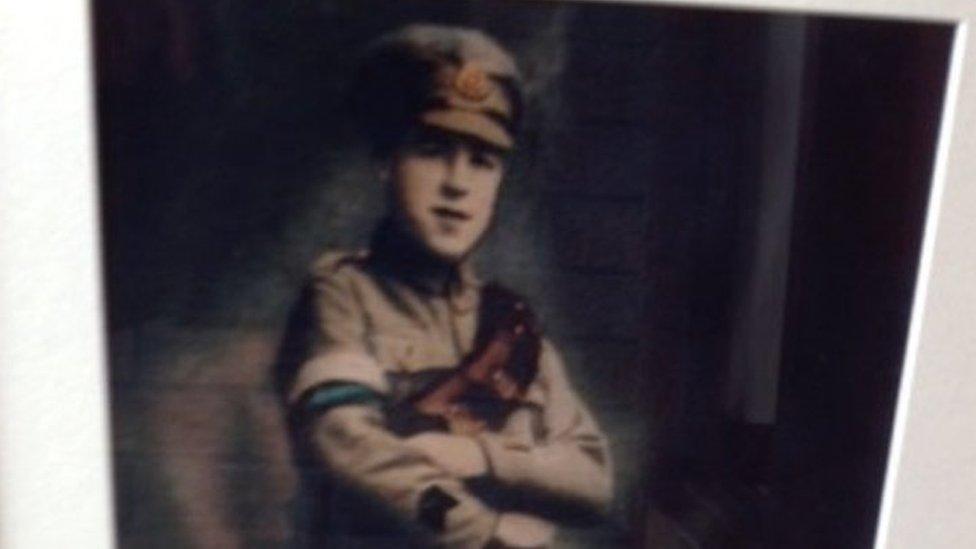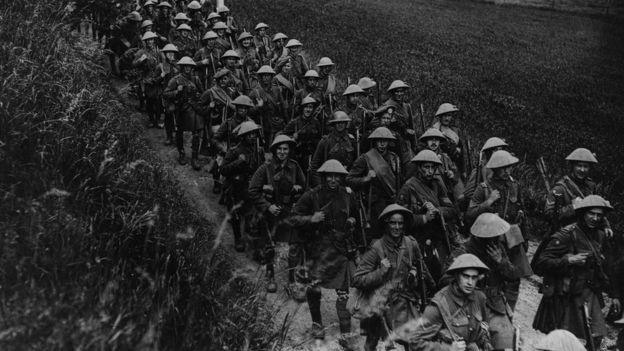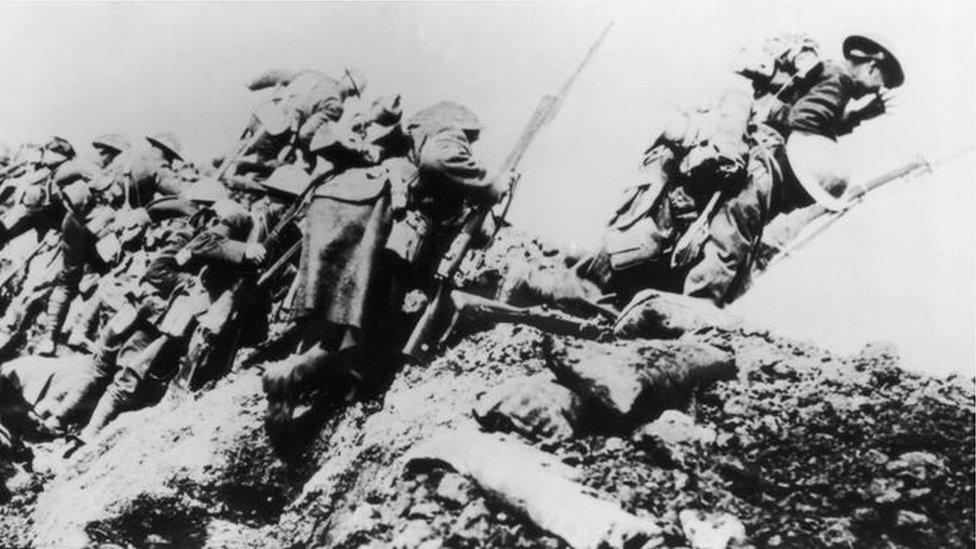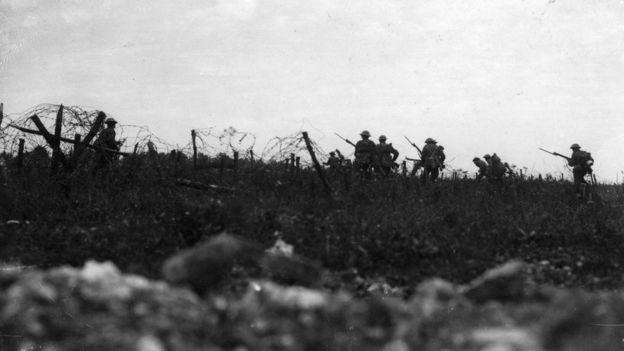Battle of the Somme: 'It was the birdsong' - brief moment nature eclipsed horror
- Published

Billy Williamson signed up for the army at 16 pretending to be a 19-year-old
World Wars One and Two were not fought in the glare of rolling news channels or social media writers, as recent conflicts such as that in Iraq were.
Most soldiers, sailors and airmen from those earth-shattering wars, in which millions died, chose not to put themselves in front of the press.
In fact, most chose not to speak about the appalling sights they had seen or answer the trite question: "How did you feel?"
In the run up to the 100th anniversary of the Battle of the Somme, many families have sought information on whether any relative had fought or died in the mud of France on that July morning.
Many have found, to their surprise, through the release of records or letters from national archives, that they had.
For all of them, the opportunity to speak to the relative is now long gone due to the passing of a generation.
In 1984, I had such a conversation.

Most of those who survived the Somme chose not to speak publicly about its horrors
It was with a man I had spent every Boxing Day with as a child up to the age of 14, after which teenage rebellion meant I chose to be elsewhere.
I vaguely knew that my great-uncle Billy Williamson had strong left-wing principles and had been an ardent trade unionist.
Little did I know his views had been shaped by the horror he had witnessed at the Somme.
Stunned
It wasn't until I was 23 and had been sent to cover a Somme commemoration at Belfast's City Hall as a reporter in the mid-80s that the penny dropped, because sitting there in a wheelchair was Billy.
"Uncle Billy, good to see you - what are you doing here?" I asked.
"I was at the Somme, son - that's why I'm here," the then 81-year-old replied.
I was stunned. This man, with whom I had spent hours, had never uttered a word at those Christmas gatherings about his service, and indeed my grandparents had never mentioned it.
Then, almost embarrassed to be there as a reporter, I asked Billy, who had joined up as a 16-year-old pretending to be a 19-year-old, what he remembered most about that terrible dawn and day.

British troops climbing from their trench on the first day of the Somme
The one-line answer was unexpected and stays with me, because Billy's abiding memory was not of the screams of men or the sound of gunfire, but of something seemingly hugely out of context.
"It was the birdsong," he said, "the birdsong in that short gap when the artillery barrage stopped and before the whistles blew for us to get out of the trench and start running - it was beautiful."
Billy enlisted on 10 September 1914, joining the 10th (South Belfast) battalion of the Royal Irish Regiment.
He trained at Ballykinlar Camp in County Down and later at Seaford in Essex.
In October 1915, he left for France, landing in Boulougne before being sent to the front.
Barbed
Two months before the start of the Somme, he was wounded, the first of three occasions in which he would be wounded before the war ended.
He was gassed on one occasion, so badly that he received a disability war pension as a result.
But on 1 July, fortune was with Billy and he survived, but not without experiencing the terror of it.

Soldiers advance towards Thiepval at the Battle of the Somme
He spoke of what faced him once out of the trench.
"The Germans opened up as soon as we were out," he said.
"There was a lot of smoke about and it was hard to see, but there was one gap which had been blown in their barbed wire and we were all to try and get through the gap.
"It was like a funnel and we had to go into it and hope we'd get out the other side alive.
"For the Germans, it was easy just to pick a spot like that and keep firing. I got through and lived."
And then the clock on the nearby Presbyterian Assembly Buildings chimed 11 o'clock.
Our brief conversation at City Hall came to an end as the formal ceremony began and I had a deadline to meet.
We never got to talk about it again, but I was thankful my news editor had sent me that day, just to hear those brief words from a quiet, unassuming gentleman who, like tens of thousands of others, kept the memory of the Somme close to their chests and hearts.